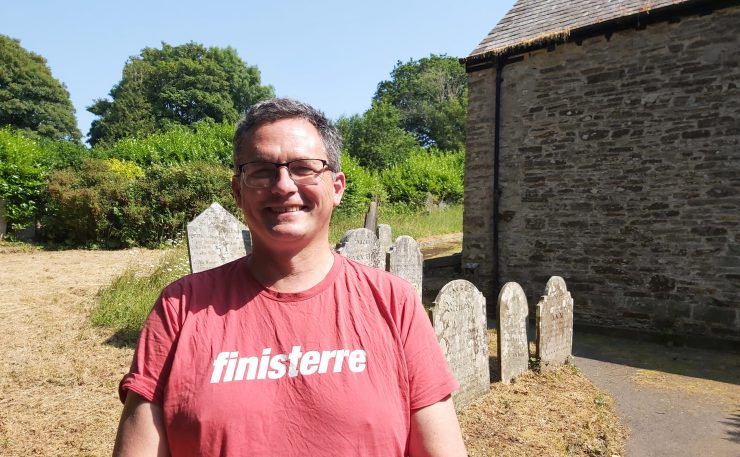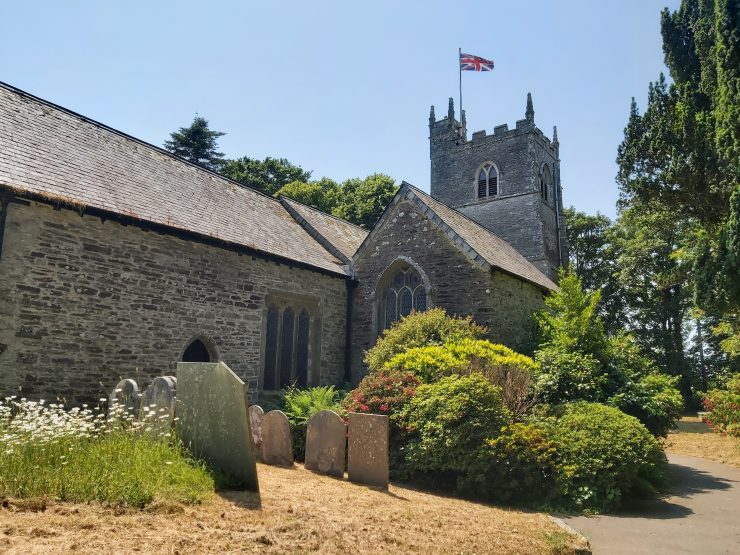West Wivelshire welcomes new Rural Dean
For the Anglican Church in Cornwall, this is clearly a crucial time. With congregation numbers having been falling for many years, the Diocese of Truro has agreed an ambitious new plan to reach out to communities, families and young people in order to renew the mission of the Cornish church.
Central to that mission is the role of the Rural Dean.
“With so many good things and so much change going on, our Rural Deans will be there to give vital support and direction, and we’re all very grateful to them for that,” says the Right Reverend Hugh Nelson, Bishop of St Germans.
“Rural Deans are important because they provide stability and encouragement for both our clergy and our laity in times of change, and because they offer that strategic lead we need so much at the moment and keep us on track with the implementation of our plans,” adds the Venerable Kelly Betteridge, Archdeacon of Bodmin.
Last month, the Reverend Ben Morgan Lundie was commissioned as Rural Dean for West Wivelshire.
West Wivelshire is one of the twelve deaneries which make up the Diocese of Truro. It includes Liskeard, Looe, Menheniot, St Cleer, St Ive, St Neot, Duloe and Lanreath.
Ben himself was last year appointed as priest in charge of the benefices of Looe & Morval and Duloe & Herodsfoot. He continues those duties at the same time as assuming his responsibilities as Rural Dean.
Made in Cornwall
Ben was born in St Austell and brought up in the neighbouring village of Grampound.
He studied biology in London, and then took a further degree in law, before practising for ten years as a corporate solicitor in Birmingham, where he came to specialise in work for the renewable energy industry.
In 2005, he and his wife Lindsey relocated to his native Cornwall, where they’ve raised their three children.
Ben then spent a couple of years working for a law firm in Truro, before moving on to work with an energy business based in Helston, developing international projects involving windfarms and other renewable technologies.
All this time, his faith had been essential to his life. He’d been brought up going to church, and had attended a church school. During his time studying law in London in the early nineties, he’d taken an Alpha course in Christian discipleship to explore the essence of his faith.
“It was then that it became very personal,” he says. “It stopped being abstract. It was the realisation that Jesus had died for me.”
But it wasn’t till 2013 that he came to recognise his calling to ministry.
Getting real
He and his wife had been running their own Alpha course at Kea Church, to the south of Truro. Ben recalls standing at the front of the faith group, giving his talk.
“I just had a sense of what a privilege it was,” he says. “My next thought was whether I should do this full-time.”
He spent the next two years going through the church process to explore and test his commitment to his calling.
In November 2015, on bonfire night, while his family had gone out to watch the fireworks, he’d stayed home, awaiting the call. Literally.
The bishop had been in London all day and called him from the airport, about to board a plane home that evening. His offer of a place on the course to train for ordination had seemed something of a revelation in itself.
“Till then the prospect of training had seemed just theoretical,” says Ben. “When he called to say I’d been accepted, it suddenly became very real.”
Ben went on to train in Oxford, separated for much of the time from his wife and children. It was a difficult time for the family.
“It wasn’t easy,” he said. “But I believe it was the right thing to do.”
Being relevant
After his training, Ben went on to serve his curacy at Budock Church, and in work to support mission projects around Falmouth.
Last spring, he was appointed to oversee ministry across four parishes in southeast Cornwall. He’s now become a great champion of such pioneering ministry.
“What it means is going outside the church and developing new ways of worshipping,” he explains. “It’s about encouraging people who aren’t necessarily ordained into ministry.”
He’s deeply committed to bringing the Anglican Church in Cornwall up to date with the challenges faced by the people in its parishes.
“I’m passionate about the church thriving and being relevant to the community,” he says. “I want to encourage and equip everyone to take part in ministry, and not just those who’ve been ordained.
“It’s not about a bland corporate approach. It’s not about making everyone the same. I want each of my parishes to be authentic, to celebrate the local and to relate to its community.”







